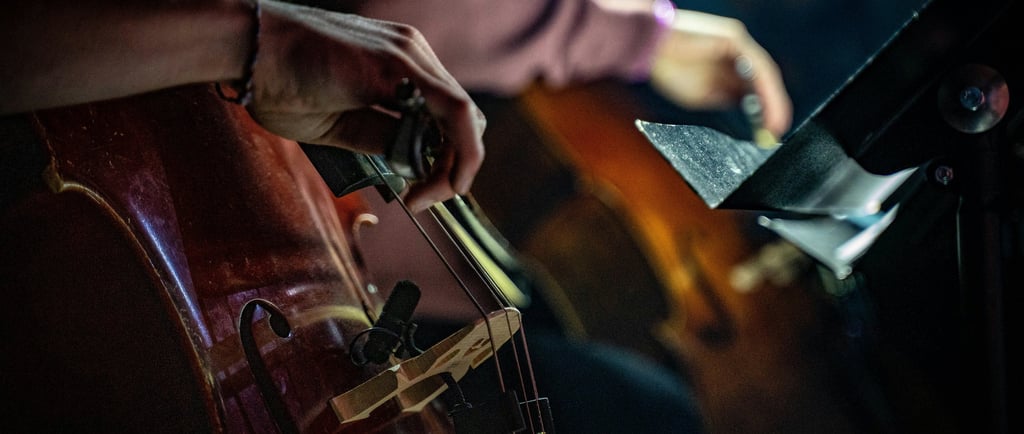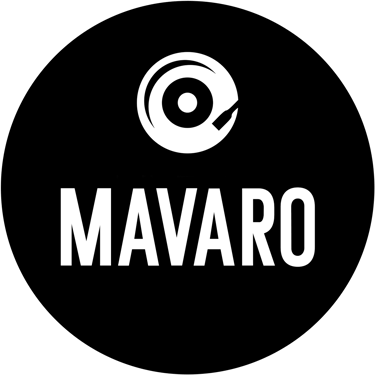How Long Does It Take to Score a Film?
Wondering how long it takes to score a short film, feature, or series? This guide explains timelines, phases, and best practices for directors and producers working with composers.


A Timeline for Directors and Producers
Scoring a film isn’t just ‘writing music’ — it’s about building the emotional spine of your story, one cue at a time.
If you're a director or producer planning your next project, you're likely asking: 'How long does it take to score a film?' or 'What's the typical film scoring timeline?'
The short answer: it depends.
But here's a real-world overview of what timelines to expect for an original film score, what factors influence them, and how to plan your schedule to get the best results.
🧱 What Influences the Timeline?
Several factors determine how long it takes to score a film. Here are the main ones:
• 🎵 Amount of music: More minutes of original music composition = more writing and mixing time.
• 🎼 Musical complexity: Minimalist underscore is faster than dense orchestral or hybrid work.
• 🎬 Genre and tone: Psychological thrillers or dramas may require more emotional nuance, for example.
• 🌍 Cultural or stylistic research: Scoring with unusual references or period accuracy adds prep time.
• 👥 Team vs. solo composer: A solo film composer can deliver a cohesive result but generally takes longer. A composer working with a team (e.g., orchestrators, engineers) is faster but requires more coordination.
• 📆 Composer’s availability: The earlier you reach out to hire a film composer, the better the chances of blocking time in their calendar — and avoiding rush fees.
• 🔁 Number of revisions: Feedback loops can stretch timelines depending on how many rounds are necessary.
🕰️ Average Timelines by Project Type
These are typical, non-rushed schedules, including standard timeframes for revisions. If you’re ahead of the curve and have some flexibility, here’s what to expect:
🟦 Short Film (5–10 minutes of music)
⏱️ 1–3 weeks
Can take up to 3 weeks — especially if recording live musicians is part of the process.
🟧 Indie Feature (20–40+ minutes of music)
⏱️ 2–12 weeks
Depending on complexity, feedback cycles, and whether the music includes live players or heavy production.
🟥 TV Series (typically 20-40 minutes of music every week)
⏱️ When using recurring elements, 5–6 mins/day is possible
When themes and sound palettes are defined early, composing can move fast — especially with a team (assistants, orchestrator, live musicians, engineerss, etc).
💡 Tip:
• Solo composers = Generally slower but more cost-effective. Note that not all composers are equally skilled in all areas (e.g., melody writing is a very different skillset compared to Dolby Atmos mixing).
• Teams = faster, but more expensive. In that case, the composer usually writes the tunes and acts as Head of Department (HoD) — coordinating assistants, musicians, the conductor, the orchestrator, engineers, etc to ensure a unified sound.
🧠 The Phases of Scoring a Film
Scoring a film is a multi-phase process — and understanding each step helps set expectations.
📖 1. Prep & Research
⏱️ varies (ideally during production)
When the script is locked (or almost), this is a great time to start developing ideas, especially if cultural references or stylistic exploration are needed. This phase may involve sketching a moodboard, sounds, instruments, palettes, or themes.
👀 2. Spotting Session
⏱️ 1 day + internal prep
This is where we watch the film together (usually after picture lock) and discuss where music should go, why, and what emotions it should carry.
From this point, the “active scoring” timeline officially starts.
✍️ 3. Writing Phase
⏱️ ~1–2 work days per minute of music (on average)
This is variable. A 7-minute minimalist score might be done in 3 days. A 5-minute cue with complex orchestration and evolving structure might take 7+ days.
For episodic work with recurring themes and a team: up to 5–6 minutes per day is possible.
🎙️ 4. Live Recording (If Applicable)
⏱️ Typically 2–5 days, depending on scope
If the score includes live musicians — from a solo violinist to a full orchestra — this phase includes:
• Booking musicians, studio, conductor (if needed)
• Preparing sheet music (copying, proofreading, orchestration)
• Recording sessions
• Editing and cleaning the takes
This happens after the writing is approved — so ideally, major revisions should happen before recording begins.
🎧 5. Mixing & Mastering
⏱️ 0.5–2 days for every cue depending on length and complexity
Final delivery formats, loudness calibration, stems, and delivery to post-production or re-recording mixer.
✏️ Revisions (Before and After Delivery)
⏱️ Varies, depending on how fast and detailed the feedback is. Some directors know what they want right away. Others prefer testing options.
Revisions can happen at any stage — but ideally:
• Major changes happen before recording
• Minor tweaks (volume, cue trimming, alternate versions) can happen after delivery
Also: if your film has test screenings or festival previews, this is a perfect time to collect feedback before finalizing the mix.
Just be sure to let the composer know those dates early — so they can reserve time for last-minute adjustments if needed.
🚨 What If It’s Rushed?
It’s definitely possible — and in fact, quite common — to write a score in a rush. But it has consequences:
• 🧩 Less exploration: Composer may lean on templates and existing sounds.
• 🎻 No live musicians: There might not be enough time to record and edit real performances.
• 🎧 Limited mixing: Quick balancing instead of deep sonic sculpting.
• 💶 Higher cost: Urgent work disrupts other scheduled projects, and incurs “priority pricing.”
Still — if you’re in a tight spot, let’s talk. With clear goals and strong communication, it’s possible to do great work even under pressure.
📅 How to Plan for Success
If you’re in pre-production or early editing, you’re in the perfect window to start a conversation.
To get the best results:
• Start early — when the script or rough cut is ready.
• Book the composer’s time — professional film composers' schedules fill up fast.
• Define deadlines — and leave time for revisions in the post schedule.
• Lock the date for the spotting session as soon as the cut is picture-locked.
• Keep feedback focused and timely — to avoid timeline creep.
🎬 Final Thoughts
Scoring a film is a creative and collaborative process — and good film music takes time to breathe, evolve, and sync with your story’s emotional arc.
Whether you need 5 minutes or 50, plan for music with the same care you give to your script or cinematography — because it shapes how your story feels. The earlier you start the conversation, the better the result.
🎵 Ready to Plan Your Film Score? Need a Film Composer?
If you’re working on a short, feature, or series and want an original film score that truly supports your story — I’d love to hear about it. Let's discuss your film scoring timeline and project needs.
✉️ Contact me
Marco Valerio Romano
⸻
You might also like:
What Makes a Great Film Score?
How to Choose a Composer for Your Independent Film
How and Where to Find a Composer for Your Indie Film
How Much Does an Original Score for a Short Film Cost in 2025?
When Should You Hire a Composer for Your Film?
Can You Use That Music in Your Film? (Even If It’s Just a Cover or You Edited It)
How to Give the Composer Directions for Your Original Film Score
How to Export Files for the Composer and Audio Post-Production

